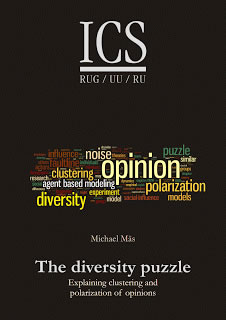 This book is concerned with explaining the dynamics that social influence causes in groups. Under what conditions will the members of a group find a consensus? Under what conditions will initial opinion differences persist? Is opinion consensus always stable, or can homogeneous groups split up into clusters with opposing opinions? Is it possible that groups polarize in the sense that differences between subgroups will increase over time? Existing social-influence theories imply that social influence causes convergence cascades which eventually end up with perfect uniformity. Empirical evidence, on the other hand, does not confirm these convergence tendencies. On the contrary, opinion diversity often remains stable and can actually increase over time. In this book, we developed theories that can explain polarization and clustering of opinions besides social influence. We analyzed agent-based computational models of these theories to demonstrate under which conditions the theories predict polarization and clustering. We also report results from experimental tests of one of the theories.
This book is concerned with explaining the dynamics that social influence causes in groups. Under what conditions will the members of a group find a consensus? Under what conditions will initial opinion differences persist? Is opinion consensus always stable, or can homogeneous groups split up into clusters with opposing opinions? Is it possible that groups polarize in the sense that differences between subgroups will increase over time? Existing social-influence theories imply that social influence causes convergence cascades which eventually end up with perfect uniformity. Empirical evidence, on the other hand, does not confirm these convergence tendencies. On the contrary, opinion diversity often remains stable and can actually increase over time. In this book, we developed theories that can explain polarization and clustering of opinions besides social influence. We analyzed agent-based computational models of these theories to demonstrate under which conditions the theories predict polarization and clustering. We also report results from experimental tests of one of the theories.
Thesis defended November 15, 2010.
Supervisors: Andreas Flache, Károly Takács, Werner Raub, Rafael Wittek
Michael Mäs currently works as a postdoc at the ETH Zürich (Chair of Sociology).
